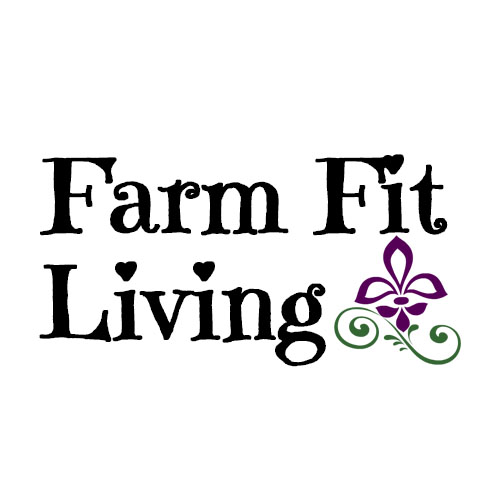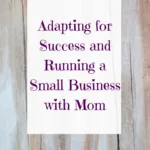
In honor of Mother’s Day this weekend I’m sharing the episode I recorded with my mom. We’re going to be talking about her day to day as a small business owner, her role in the family business, and what life is like in a rural community. She’s going to chat about how adapting for success was the key to managing their business and her personal life.
In this episode you’ll learn:
- What running a small business with her husband is really like
- How adapting for success helped their business
- How she balances both work and life
Meet Lisa Hammer Tebow
Lisa and her husband took over the family business almost 35 years ago. They do plumbing, heating, and electricity work and it seemed like they were always on call. Her husband was often out on calls and they until recently, had at least one employee working for them. At the time of this recording, they were trying to cover the extra workload of an employee that had been diagnosed with a brain tumor and wouldn’t be returning to work. The business is in Cortland, KS in Republic County, covering about 320 families.
How They Keep the Business Going in a Small Town
Their business is very diversified. In the summer they’re doing a lot of work and air conditioning work. They are in a big rural water district and do all of the digging and pumps for the water lines. With the influx of young couples returning to the area they’ve also been busy with new house builds, which is covering plumbing, heating, and sewer work. It seems that whenever there is an opportunity for slow time they pick something else up, like cattle waterers. In the winter we’re helping build new fencing, new pens, and other projects around our customer’s properties. They have four full-time men working for them and they want to make sure no one is left just to stand around so when one thing slows down they pick up another.
Marketing in a Rural Community
Their biggest marketing is word of mouth, which can always go one way or the other. So we really strive to be as professional as possible. She will often times have a calls from people within the community saying “I’m friends with so and so and they said you did really great work, could you come give me an estimate?” They also advertise on the local radio station, sponsor events for the schools and community, plus advertisements in the local newspapers. They love advertising that way since it’s also giving back and supporting the community they’re so proud to be a part of.
Working with Your Spouse
Lisa is the business mind behind the company, the one to organize and plan while her husband is the engineering mind. He can put together, design, fix. So they do their best to remain in their zones of genius to avoid conflict. She manages the business, he does the mechanical stuff. There are always days they don’t agree on certain things but remaining professional is of upmost importance when you’re running a business together. In some cases that means going to your separate corners, thinking through the problem, and coming back to talk about it once you’ve cooled off.
No one wants to come to a business where the owners don’t get along. We both work really hard in our perspective areas and respect one another for the parts we play. So the more understanding you are, the more professional you are, the easier working with your spouse is. You have to put the business and customers first.
How Do They Balance Life and Work
Most of the time Lisa is taking care of the home front, when I was a kid she was the primary caretaker of the household and kids. Now she babysits the grandkids when she can and made sure to record the kids and grandkids so that he can still feel a part of their lives. There are times when she has to go out on calls but it doesn’t happen often.
What was the hardest skill to learn?
People skills were the hardest to learn. She handles the calls, the complaints, and learned to put their interests first even when she thinks a complaint isn’t warranted. Some parts of the customer service experience are great, she loves when one of her guys receives a note in the mail. Other parts are tough to swallow, like customers who want things for free or don’t want to pay full price for a service.
She’s also learned how to wire, cleaning and gluing pieces of pipes together. She’s used their tools and these skills during their own remodel, which has helped her educate their customer by being able to show them the pictures she’s taken and share her firsthand experience. She actually learned some of her skills from when she was in FFA. However, she’ll be the first to admit that it’s not really her cup of tea. She can run a trencher and a backhoe-although her skills aren’t as honed in those areas.
Are They Looking to Expand?
Although I talked about adding a Facebook business page in order to help drive business they realized they were busy enough. They didn’t have a need for any more business or expansion. They currently run about a 60-mile radius and with their current advertising and word of mouth they are “busy enough.”
Lisa uses QuickBooks to keep track of all of the expenses and equipment. Trying to keep track of her husband is a bit more complicated though. Since he is the one on the calls she relies on him, and the rest of their employees, to keep track of who they see and what they do when they go out on their jobs. Each evening they report back to her and she updates the books. The business itself has been around for over 50 years and Lisa spent a lot of time in the office learning from her husband’s Dad.
A normal day for Lisa begins at 7:30 and ends between 5 and 5:30. Where as her husband’s day can begin as early as 4:30 in the morning and he may not be home until 8 or 9 o’clock.
When they’re not working they’re often with family-spending time with their kids and grandkids. They also love sports and try to see the Chiefs and K State when they can. She, of course, loves to do yard and garden work. Cortland has some really great places to eat, which will normally have live music, an art center, and Bellville has a movie theater.
Best Advice She Has Received
Her #1 running a small business tips is to to treat the business as a business. It’s easy to trade labor or say I can “just do this real quick.” However, it’s important to have a paper trail. You do the work, write it down, and everything is documented. Which ends up helping the customers too since everything is written down. She will receive a call asking what size furnace filter they need or what kind of humidifier. So it’s been great to have the ability to go and look it up.
What Has Been the Hardest and the Best
The hardest part of the business is adapting to the times. Farming isn’t good right now, the farmers aren’t getting a great value for their crops and roughly 85% of their clientele is farmers. So adjusting during hard times is difficult for everyone. She has learned to save money when things are going well so they can still pay the bills when things aren’t going as well.
The best part of working with farmers is just knowing their business. Lisa was a farm girl too so she gets their lifestyle. She loves when people come in and they need a new water pump because their Charolais tromped it.
Wrapping Up
One of the key lessons Lisa has learned is to adapt. Adapt to a new business when they took it over, adapt to a changing economy, adapt to working with her husband. Balancing running a business and a home isn’t an easy task for anyone but she loves it. She loves getting to go to work each day and be a part of helping those in their community.

